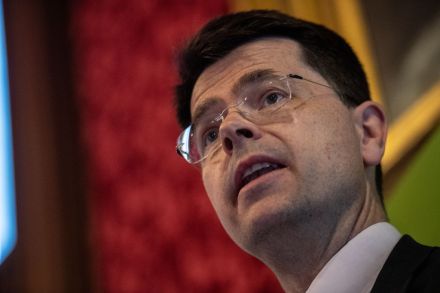What did Japan make of Jeremy Hunt’s Brexit mission?
Attempting to explain Brexit in 90 seconds might remind you of a Monty Python sketch, but this is what Jeremy Hunt attempted in front of a class of Japanese high school students on Monday. The foreign secretary gave a carefully worded summary of the Brexit situation using the graded language of the English language teacher he used to be. It’s not clear whether the students were any the wiser after he spoke, but the real aim of the lesson was achieved: to generate positive headlines for the Foreign Secretary on his latest visit to Japan. Hunt has some advantages. He lived in Japan in his early 20s, mastered the language and





















